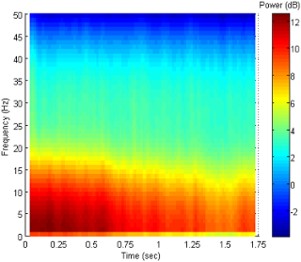
20 Sep The spectral fingerprint of sleep problems in post-traumatic stress disorder
A study published in the journal SLEEP investigated sleep disturbances in post-traumatic stress disorder (PTSD), which presented evidence for an objective neural marker for PTSD sleep problems.
Sleep EEG spectral power across the brain and polysomnographical results were compared in matched trauma-exposed individuals with and without PTSD. During non-REM sleep, PTSD patients showed a substantial loss of slow oscillation power, yet increased power for higher frequencies. These effects appeared over frontal areas and correlate with insomnia. PTSD REM sleep showed increased slow oscillation power over occipital areas. The latter effects positively correlate to nightmare activity and insomnia.
A spectral index derived from these data distinguished patients from controls with high effect size, bearing promise as a candidate biomarker for PTSD.
Reference:
The spectral fingerprint of sleep problems in post-traumatic stress disorder
M de Boer, M J Nijdam, R A Jongedijk, K A Bangel, M Olff, W F Hofman, Lucia M Talamini. Sleep, Volume 43, Issue 4, April 2020, zsz269, https://doi.org/10.1093/sleep/zsz269

